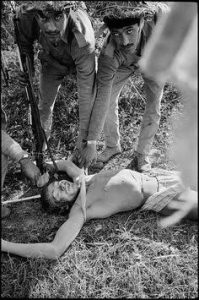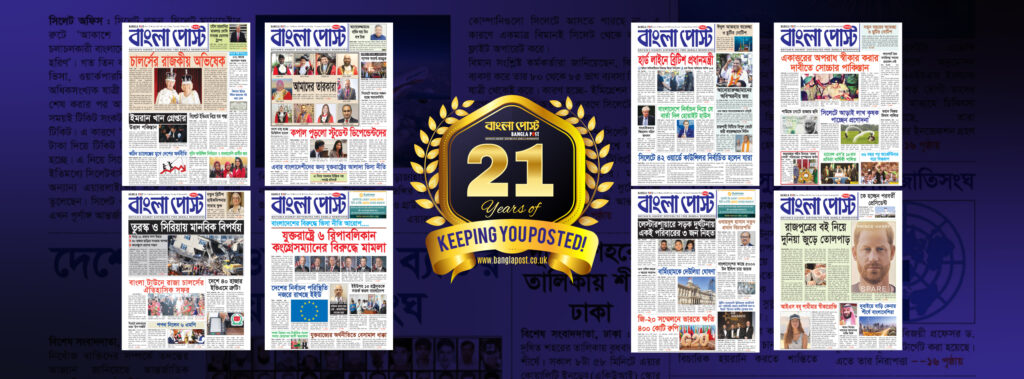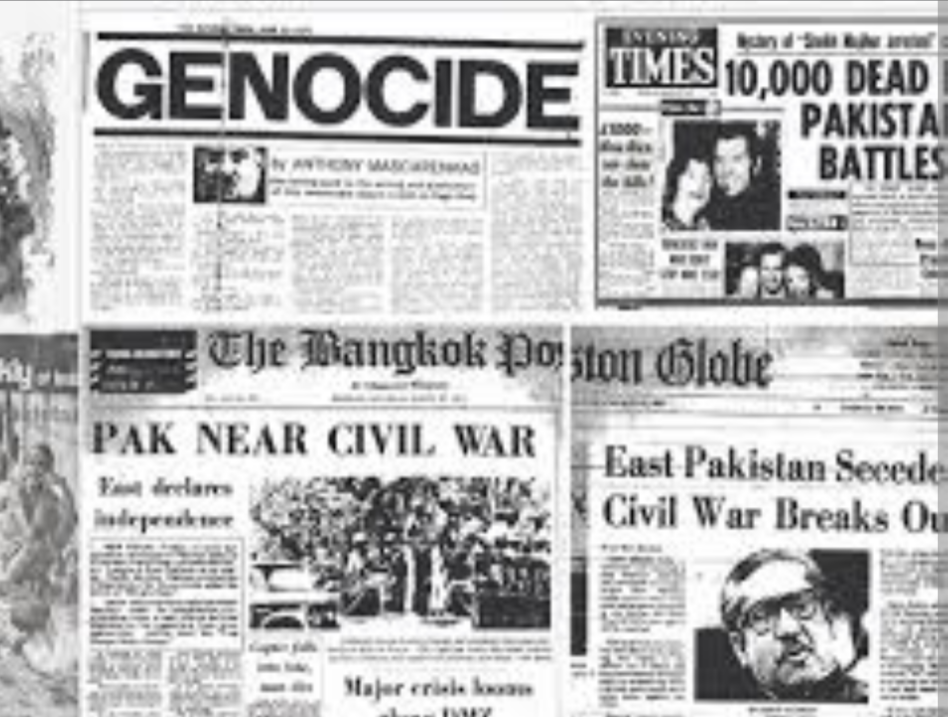Pakistan Army’s Actions in East Pakistan: Exposing the Genocide and Demanding Justice
Introduction:
It’s still considered a dark period since the events occurred in East Pakistan (modern-day Bangladesh) in 1971. One of the most horrifying genocides of the 20th century occurred due to military action and following crimes committed by the Pakistani Army against the Bengali people. This article intends to expose the crimes against humanity performed by the Pakistani Army, shed light on the genocide committed in East Pakistan, and emphasise the necessity of holding people accountable for their acts. Historical Context
Pakistan was established in 1947 as a particular country for Muslims due to the partition of India. However, due to the geographical and cultural separation between East and West Pakistan, the Bengali population in East Pakistan has grown more dissatisfied. They demanded more autonomy and equal rights due to the West Pakistani elite’s political and economic marginalisation of them.
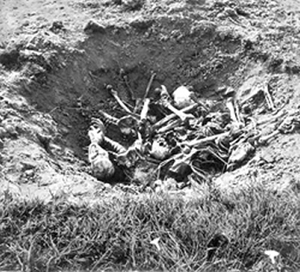
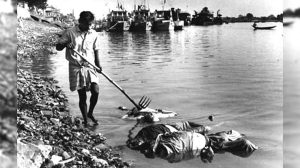
Background
Throughout the tumultuous history of East Pakistan (present-day Bangladesh), the people of the region endured a multitude of oppressions, marginalisation, racism, and suppression at the hands of West Pakistan. From the inception of Pakistan in 1947, the cultural, linguistic, and economic disparities between East and West Pakistan fueled a growing sense of discontent among the Bengali population. The ruling elite in West Pakistan systematically marginalised the Bengalis, relegating them to secondary status and denying them their rightful political representation. The imposition of Urdu as the sole national language further alienated the Bengali-speaking majority and symbolised the cultural hegemony of West Pakistan. Discrimination in educational institutions, government jobs, and economic opportunities deepened the divide, exacerbating the sense of injustice felt by the people of East Pakistan.
The suppression of Bengali identity and nationalist aspirations by the West Pakistani authorities became increasingly evident. Despite East Pakistan being more populous, it was subjected to a disproportionate allocation of resources, with West Pakistan benefiting at the expense of the Eastern region. The neglect of infrastructure development, healthcare, and educational institutions further deepened the socio-economic disparities between the two areas. The domination of the military, bureaucracy, and economic power by West Pakistan perpetuated a system that perpetually disadvantaged the people of East Pakistan.
In addition to the systemic marginalisation, racism and discrimination were prevalent in various aspects of life in East Pakistan. The Bengali population faced derogatory stereotypes, cultural denigration, and condescension from their West Pakistani counterparts. Bengali language and culture were undermined and dismissed as inferior, further eroding the pride and self-esteem of the Bengali people. These oppressive practices, coupled with the denial of political rights, served to stifle the voices of the Bengalis and fuel the growing movement for autonomy and self-determination.
The cumulative effect of these historical oppressions and suppressions ultimately culminated in the tragic events of the Bangladesh Liberation War in 1971. The systematic atrocities committed by the Pakistani military during the war, including mass killings, sexual violence, and the destruction of villages, were a brutal manifestation of the deep-seated prejudices and power imbalances that plagued East Pakistan for years. The struggle for independence and the subsequent emergence of Bangladesh as a sovereign nation is a testament to the indomitable spirit of the Bengali people in the face of grave injustice.
It is crucial to acknowledge and learn from this history of oppression, marginalisation, racism, and suppression to promote inclusivity, justice, and equality in contemporary society. The experiences of East Pakistan serve as a stark reminder of the consequences that arise when such injustices persist unchecked. By striving for a more equitable and harmonious future, we can honour the resilience of the Bengali people and ensure that such oppressive practices never recur.
The East Pakistani Genocide
Operation Searchlight, a ruthless assault by the Pakistani military to quell the Bengali nationalist movement, was started in March 1971. Mass executions, systematic rape, forced disappearances, torture, and village devastation were among the Army’s tactics. The crimes perpetrated were of unprecedented scope and severity, creating a huge humanitarian disaster.
Against Humanity Crimes
The Pakistani Army’s atrocities in East Pakistan are blatant breaches of human rights and international humanitarian law. Specifically, the purposeful targeting of professionals, academics, and Bengali elite members constituted a planned attempt to intellectually and culturally damage the area. A serious violation of their fundamental human rights was also committed when Bengali women were subjected to widespread rape and sexual assault as a weapon of war.
There are several reports and eyewitness accounts that support these crimes against humanity. The scale and regularity of the crimes carried out during the Bangladesh Liberation War have been thoroughly recorded by Amnesty International, Human Rights Watch, and other respected organisations.
Justice’s Pursuit:
As a result of the genocide, Bangladesh became a sovereign state. However, the criminals who committed the crimes in East Pakistan were never made to answer for their misdeeds. The lack of justice has prevented the past’s wounds from healing, continuing a cycle of impunity.
Numerous people, groups, and governments have made an effort to seek justice for the genocide victims. To look into and bring those accountable for the crimes perpetrated in 1971 to justice, Bangladesh’s International Crimes Tribunal (ICT) was formed in 2010. The ICT trials have resulted in some degree of justice, but it is still difficult to ensure that everyone implicated is held accountable.
That is what drives me. I am determined to do my part in seeking justice for the victims of the genocide so that a further cycle of impunity does not happen again. I want to use my skills and resources for this cause and ensure those responsible are brought to justice and held accountable for their crimes against humanity. This is my pursuit:
The Significance of global action
The world community must acknowledge the importance of holding the Pakistani Army ranks and files accountable for the massacre in Bangladesh. Justice is crucial for protecting the victims’ families, establishing the rule of law, and preventing further crimes. Holding offenders accountable sends a clear message that crimes against humanity will not be accepted, regardless of how long it has been since they occurred.
Conclusion:
One of the worst moments in contemporary history was the genocide carried out by the Pakistan Army in East Pakistan during the 1971 Bangladesh Liberation War. The international community must keep pushing for justice and ensuring that those responsible for these crimes are brought to justice. We may strive towards a future where the values of humanity, justice, and human rights are protected without compromise by acknowledging the scope of the horrors done and learning from the past.
- Rummel, R. J. “Death by Government: Genocide and Mass Murder in the Twentieth Century.” Transaction Publishers, 1997.
- Schendel, Willem van. “A History of Bangladesh.” Cambridge University Press, 2009.
- Nayar, Kamal. “The Blood Telegram: Nixon, Kissinger, and a Forgotten Genocide.” Mariner Books, 2014.
- Khan, Yasmin. “The Great Partition: The Making of India and Pakistan.” Yale University Press, 2007.
- Karim, Lamia. “The Long Struggle for Liberation: Reflections on Bangladesh.” Zed Books, 2013.
- Amnesty International. “Bangladesh 1971: Forgotten War, Unfinished Business.” Amnesty International Publications, 2011.
- International Center for Transitional Justice. “Justice Denied: The Reality of Impunity in Bangladesh.” International Center for Transitional Justice, 2010.
- Choudhury, G. W. “Bengal Divided: Hindu Communalism and Partition, 1932-1947.” Cambridge University Press, 2002.
- Human Rights Watch. “Pakistan: A Decade of Disappearances.” Human Rights Watch Publications, 2017.
